#tetsaveh
Text


21 notes
·
View notes
Text


12 notes
·
View notes
Photo

Parashat #Tetzave Tetsaveh en la Comunidad de Torah (11 videos) https://www.youtube.com/playlist?list=PLj3ddeTs0CTy9jqJlbQvRkDaTuMo3uuJb
0 notes
Text
0 notes
Text
Tetzaveh: The Sons of Aaron
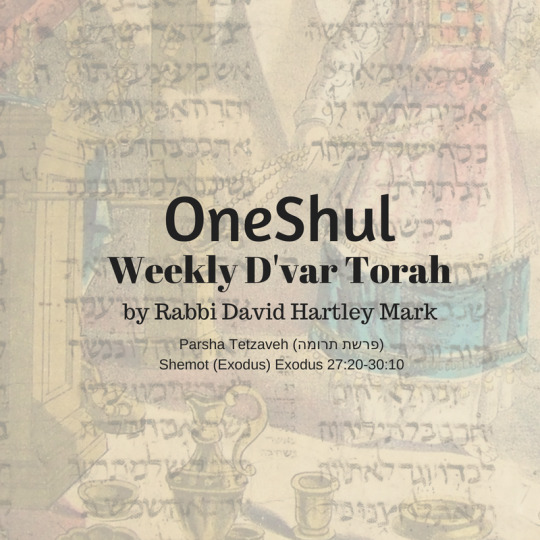
Scene: The Mishkan, God’s sacred Dwelling-Place in the Wilderness; specifically,the Brass Altar, whereon various sacrifices are burned. The sun is setting. The Altar apparatus, used to placate, thank, or bless the LORD GOD, is tended by the Sons of Aaron: Nadav, Avihu, Elazar, and Itamar. The four boys—young men, really—are sprawled against the base of the Altar, resting from the day’s work of offering sacrifices. Their Priestly Garb is covered with soot and ash, and they are clearly exhausted from the work of slaughtering the beasts which the Israelites bring as offerings, cutting them up, separating out the edible portions permitted to themselves and their families (hekdesh—holy parts designated for the Priesthood), and burning the entrails, the fat, and the various body parts to God. Enter Aaron, looking spotless in his Priestly raiment: his golden headpiece, labeled “Holy to God” gleams in the dying sunlight. He shakes his head at his four sons—he is proud of them; they will replace him, one day, but he cannot abide their slovenliness.
Aaron: I’m glad that you’re taking a break, boys. I’m going home for supper. Make sure that you clean up all the offal, scrub the Altar, and polish it with the special wax that Bezalel provided. I don’t want to see even the slightest speck of dirt or ash, come tomorrow morning.
All the Sons: Yes, Sir, Papa. We’ll do a good job. You can depend on us.
Aaron: See that you do (He exits).
Avihu: (mimicking Aaron): “Clean this all up, Boys. Don’t you even think of going home to your wives, until you scrub and polish and wax every cubit of the Altar.” You know, Papa can be a bit of a martinet, sometimes.
Elazar: He is entitled to be; he is the High Priest of God, and I, for one, feel privileged to work here, at the Altar. We Priests do not have to herd sheep and goats; we are the means by which the Israelites can atone for their sins. This is an honor. (Itamar nods vigorously; Nadav and Avihu frown at Elazar, and mutter under their breath.)
Nadav: Master Elazar, will it please you to get some clean rags for us to begin the holy work of cleaning Papa’s altar? I’m sure scrubbing off tons of soot will give you much pleasure.
Elazar: Brother Nadav, do not tease me. God honors us, by allowing us to serve in His Presence.
Avihu (yawning): I think God’s a fable.
Nadav: Aye, well may you think so, until experience teach you otherwise.
Elazar: How can you utter such blasphemy? You, Avihu, are a priest of the One True God, and ought to speak in a more holy fashion.
Avihu: Do not tempt me, Baby Brother; I am bigger and stronger than you, and can do you hurt, should I wish to.
Itamar: Brothers, brothers—how can we quarrel here, in the very shadow of God’s Presence? He may be listening to what we say—Nadav, Avihu, please stop your questioning God; He may, God forbid, choose to punish you. As priests, we are held to the highest standards of behavior.
Nadav (rising): I am bone-weary in this abattoir, and yet must clean and polish this—this—monstrosity of an altar. In Egypt, I remember, the pagan priests had not one altar, but several; they were mainly mud or stone, and needed no special care. But this great hunk of brass—(he spits contemptuously).
Elazar: Please, Nadav, I beg you. The God of Israel neither slumbers nor sleeps. Be aware of three things, and you will not sin: A Seeing Eye, a Hearing Ear, and All Your Deeds Written in a Book.
Avihu: Written by whom? Your Invisible God? I tell you, Elazar, you simpleton, I would rather worship Ra, or Osiris, or any of the Egyptian gods. They are visible; they are statues—
Itamar: You mean, idols, such as Uncle Moses expressly forbade when he was reading us the Law from Mt. Sinai.
Avihu: Yes; I was there, and I heard, along with the multitude. And now, through no fault of my own, I am covered with soot and dung, and my ears still ring with the lowing of cattle. This is no job for a young, enterprising man such as I. Oh, if I could only choose my own profession, rather than be drafted and dragooned into the family business!
Elazar: This is no mere business, Avihu; mind your tongue! This is Holy Work, such as no other man can possibly perform, even from the multitudes of Israel.
(Avihu spits at Elazar’s feet)
Avihu: Well, Brother, how will you respond to me? Will you cry out unto the Lord your God? For I tell you, I have yet to see any miracles which He performs.
Itamar: How can you say that? You stood at Sinai; the Sea of Reeds lapped at your sandals while the Egyptians drowned in the tide; you were among the blessed horde which escaped the slave-rule of the mightiest nation on earth: Egypt.
Nadav: Ah! How can you prove this? Perhaps it was all a dream, and this God of yours put us all in a trance. Perhaps it never happened.
(Enter BOY)
Elazar (gently): Well, Young Master Choni ben Maagal, what is your message?
Boy: If it please you, Reverend Sirs, Rabbi Moses our Leader has sent me. You must prepare to dedicate the Mishkan, the Sacred Dwelling-Place for our Lord God. This will take place next week.
Nadav: Who will dedicate this holy, stately pile? All of us?
Boy: No, Lord Nadav; Moses informed me, and the High Priest Aaron, too, that the two older priests—you and your brother, Lord Avihu—will officiate at the Dedication. It will be a matter of great import and solemnity. Shalom, and may God bless your endeavors! (He exits)
Avihu: So there you have it, Nadav: you and I, the Doubters, are to stand before all Israel, and dedicate this—this Dwelling-Place for the God in whom we do not, necessarily, believe.
Itamar: How ironic! Would it not be better for Elazar and me, as True Believers, to officiate? You two could beg off—
Nadav (seizing Itamar by the arm, twisting it, and forcing him to his knees): Listen to me, you whelp: I am the First-Born, and by rights will stand before the—the—Invisible One, say the prayers, slaughter the animals, and burn them to a crisp. And afterwards—
Elazar: Nadav, I beg you, let Brother Itamar go! (Nadav does so)
Nadav: And afterwards, you little sneak, I will take you behind the Tent of Meeting, and pummel you until you bleed. How dare you presume to upstage me, your eldest brother! (He releases Itamar, who holds his arm painfully, and retreats)
Avihu: Yes: to officiate before the eyes of all Israel. That will be a good thing.
Itamar (from a distance, keeping an eye on Nadav): But you do not believe!
Nadav: But the honor, the honor of it all! And to have everyone looking at me! Believe or not believe—who cares? How splendid it will all be! The ceremony! The trumpets! And to have Papa see how talented Avihu and I are! (They exit, laughing and prideful)
Itamar (whispering to Elazar): I only pray that nothing happens to them—they are headstrong; they are agnostics, and they will be dealing with Cosmic Forces beyond their control.
(Elazar and Itamar exit)
Rabbi David Hartley Mark is from New York City’s Lower East Side. He attended Yeshiva University, the City University of NY Graduate Center for English Literature, and received semicha at the Academy for Jewish Religion. He currently teaches English at Everglades University in Boca Raton, FL, and has a Shabbat pulpit at Temple Sholom of Pompano Beach. His literary tastes run to Isaac Bashevis Singer, Stephen King, King David, Kohelet, Christopher Marlowe, and the Harlem Renaissance.
#progressive judaism#judaism#jewish#torah study#drash#tetzaveh#tetsaveh#t'tzaveh#t'tzavveh#parsha#weekly parsha#shabbat#shabbos#sabbath#rabbi david hartley mark#oneshul
0 notes
Text

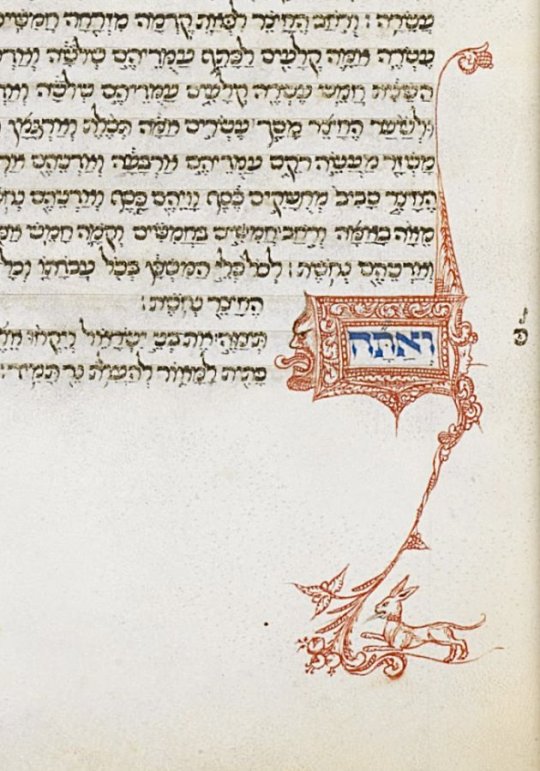
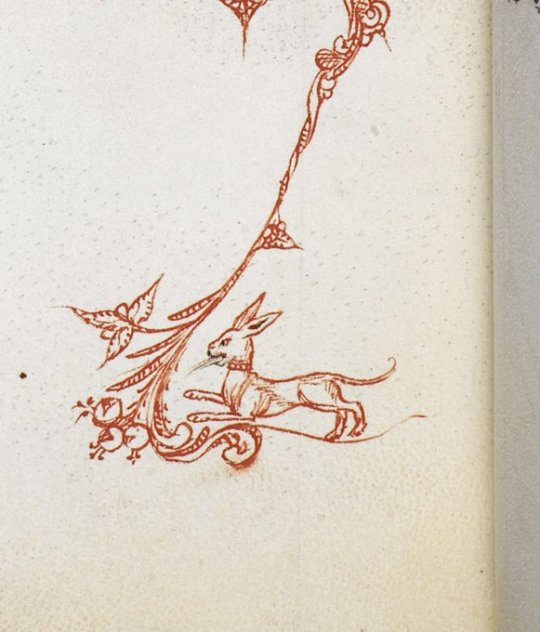
20 notes
·
View notes
Text


#Torah portion Tetsaveh (תְּצַוֶּה)#ParashahPictures#The Kennicott Bible#1476 CE; La Coruña#Spain#Judaism
18 notes
·
View notes
Text

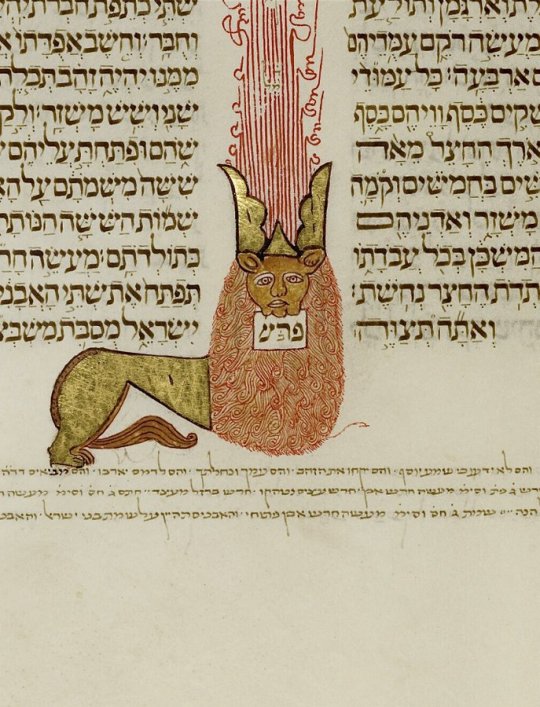
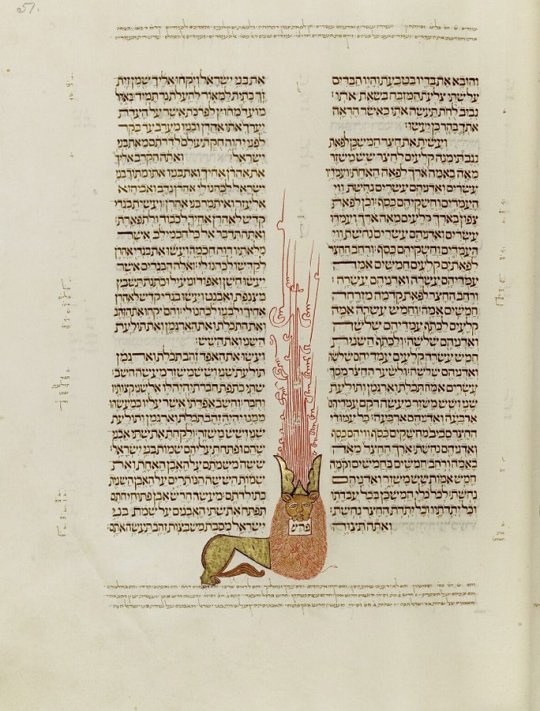
20 notes
·
View notes
Text


19 notes
·
View notes